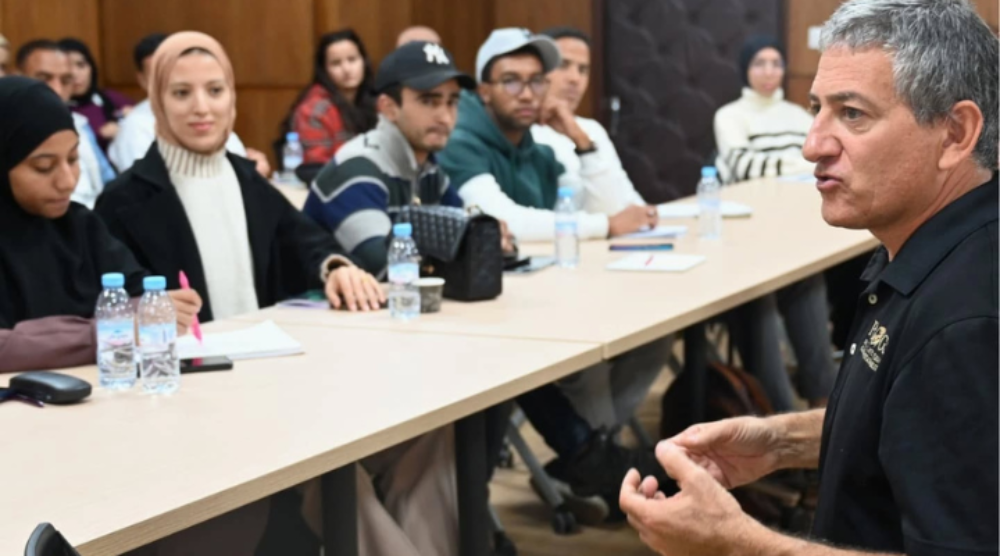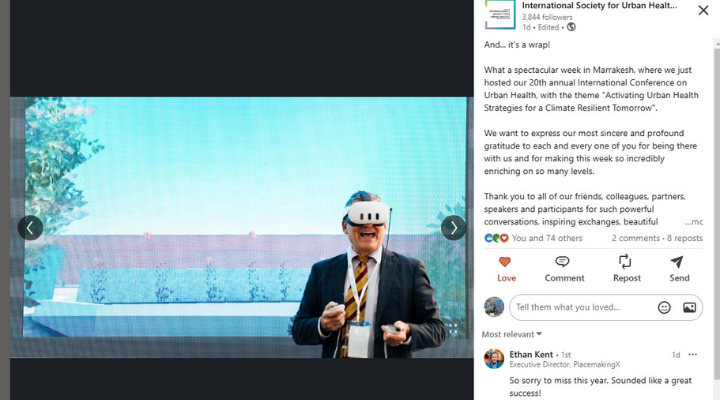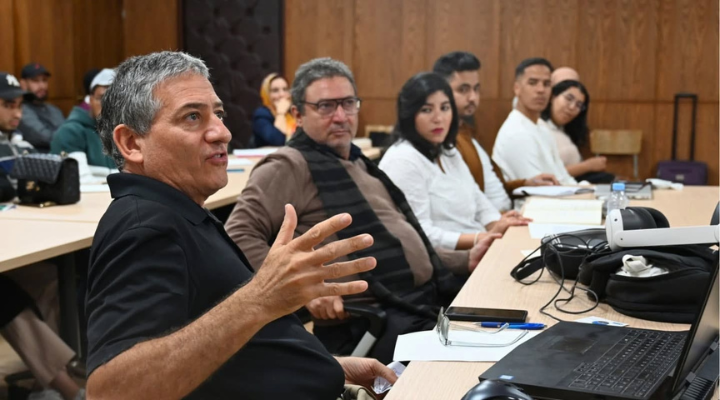From November 15th to the 30th, Dr. Thomas Henry (T.H) Culhane, Associate Professor of Instruction and Concentration Director of the Climate Mitigation and Adaptation concentration at the Patel College of Global Sustainability, embarked on an exciting trip to Morocco aimed at promoting sustainable practices and technologies. His journey began with an all-day workshop, hosted by the High Atlas Foundation on Urban Health and Climate Change on Monday, November 18th. The following day, he delivered a presentation at the international conference on Urban Health held at the Marrakech Museum, which included a practical workshop on constructing household biodigesters using locally sourced materials in innovative ways - a task Culhane is particularly known for.
On Wednesday, November 20th, Dr. Culhane continued his presentations, focusing on the topic of "Democratizing Immersive Geospatial Planning to enhance Climate Mitigation and Adaptation Strategies". Throughout the week, he engaged in numerous other meetings with international groups of sustainable urban placemakers, landscape architects, and designers, and he was introduced to the director of the Water Museum- further promoting the mission of sustainability.

On Friday, November 22nd, Dr. Culhane spoke at Cadi Ayyad University and the High Atlas Foundation alongside his Moroccan colleague, Dr. Adnane Labbaci, discussing Geographic Information Systems (GIS) and the advancement of GeoAI and Digital Twin technologies to foster collaboration between the United States and Morocco. To conclude the week, he and his family participated in an indigenous cooking class at the Amla Foundation on Saturday, November 23rd, where he agreed to build a biodigester in their food security garden.
The second week proved to be equally thrilling. It commenced with a visit to the Argan Oil Agroforestry-based Indigenous Women’s Cooperative (AFOUS) on Sunday, complemented by various leisurely tourist activities in the High Atlas Mountain region. Subsequently, Dr. Culhane traveled by train to the city of Ben Gueier, where he attended lectures on Nexus Technologies and Sustainability at the Mohammed VI Polytechnic University. In addition to the lectures, he was escorted on a tour of the university's advanced facilities by his PRIMA (a program committed to uniting Art and Science) partner, Dr. Mohammed Ouarani.
On Tuesday, the 26th, Dr. Culhane contributed to georeferencing activities at the Akrich Jewish Cemetery and Agroforestry Nursery, as well as the Amazigh Community Women’s Cooperative focused on carpet weaving, where he engaged in discussions regarding biodigesters and Nexus Technologies.

Dr. Culhane with Oculus VR headset
On Wednesday, the 27th, Dr. Culhane and his family were graciously invited to a family dinner by the owners of Vitamel, a company specializing in organic honey and Amalous production, which has a background in collaborating with the government on sustainable development projects. His educational journey in Morocco concluded on Thursday, November 28th, with an invitation to return to Cadi Ayyad University to meet with their director of partnerships to discuss student and faculty exchanges, as well as community collaborations. Additionally, he was given a tour of the sustainability laboratories. As a parting gesture, Dr. Culhane left behind biodigester materials and gifted an Oculus 2 VR headset to facilitate their workshops and enhance collaborative online communication and curriculum sharing.
This experience enhanced Dr. Culhane’s understanding of global advancements in sustainability and provided him with the chance to synergize with committed sustainability professionals. During this period, he successfully recruited three students for the upcoming semester's Sustainability Design Lab course, as well as another student who is in the process of applying to the program.
